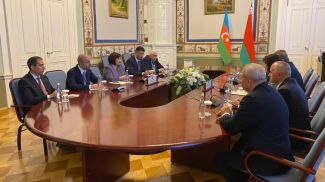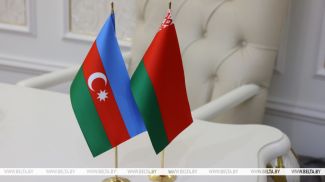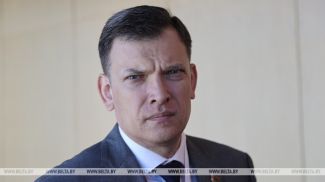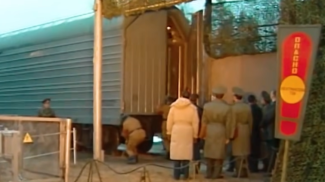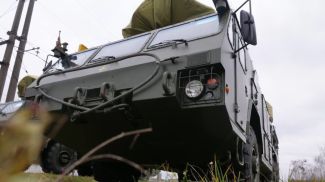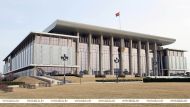MINSK, 16 March (BelTA) - Digital society and economy should be built with care for people with physical disabilities, Director of the ITU Regional Office for CIS Natalia Mochu said at the forum “Smart Sustainable Cities: Organizational and Technical Aspects of Development” in Minsk on 16 March, BelTA has learned.
"Today's forum highlights the concept of smart sustainable cities. We are talking not only about cities but also about smart villages and communities, ways to combine the existing communication structure, digital services and integrate them into one and developing relevant digital skills of people. The latter is especially important because this makes living more comfortable,” Natalia Mochu noted. "We must also understand that the comprehensive digital society and economy must be built with care for people with physical disabilities. The social task of the state is to pay attention to them as well."
She noted that ITU works a lot with Belarus in all key areas. "COVID-19 is not a hindrance to us. The forum is operating a hybrid format: offline and online. About 200 people have registered for the forum,” the expert stressed. “We hope that the research and developments which are presented at the forum will be continued. For example, this year we will implement a small pilot project in Polotsk (as part of the Smart City program) - Smart School at gymnasium No.1. We hope that this project will become a technical model that can be scaled up in other cities of Belarus. The project will get underway in April. The work will last until about September-October. We hope to be able to take stock at the end of the year.”
According to Natalia Mochu, Belarus has a very high level of infrastructure development, actually one of the highest in the region. "Almost every multi-storey building has access to optic fiber. The 4G coverage is good. Therefore, all this provides an excellent technical base for assimilating all kinds of electronic platforms, digital services. What needs to be done is to promote these digital services and teach all citizens how to work with," she said.
A smart sustainable city is an innovative city that uses information and communication technologies (ICTs) and other means to improve quality of life, efficiency of urban operation and services, and competitiveness, while ensuring that it meets the needs of present and future generations with respect to economic, social, environmental as well as cultural aspects.
The International Telecommunication Union (ITU) forum “Smart Sustainable Cities: Organizational and Technical Aspects of Development” is running in Minsk on 16-18 March. The forum has been organized by the ITU jointly with Giprosvyaz and the Communications and Informatization Ministry of Belarus. Taking part in the event are representatives of the ITU, government, regional authorities and also major institutions of science and education. Speakers from Russia, Ukraine and Azerbaijan, experts from the Green Cities Project, UNDP, specialists of Belarus' major companies will share the practical experience and suggest ways of building a smart sustainable city.
The program of the forum includes a wide range of thematic reports of international experts in such areas as organizational and technical aspects of smart sustainable cities development. The objectives of the forum are to introduce Belarusian specialists to the latest global achievements in smart sustainable city construction implemented under the auspices of the ITU, and to consider the proposals of the ITU member countries in the region to unify approaches on this front. Another goal of the forum is to determine the area and procedure for interaction between state and commercial structures in the joint implementation of smart city solutions.
The forum will help leading specialists from different countries to exchange experience in the development of smart city technologies and solutions on the most pressing issues, to reach a common understanding of the problems of a smart city and ways to solve them.
The forum will also include a meeting of the regional group of the ITU-T study group 20 for Eastern Europe, Central Asia and Transcaucasia.




